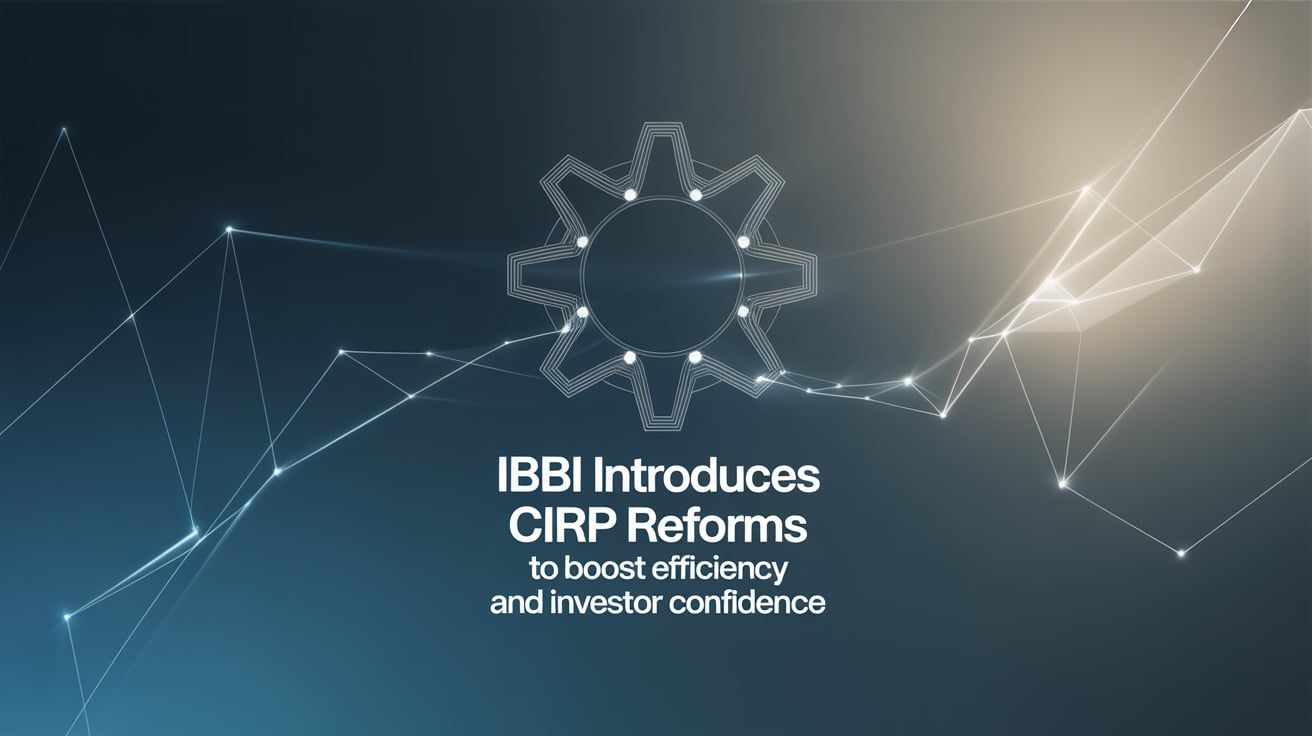The Insolvency and Bankruptcy Board of India (IBBI) has unveiled sweeping changes to the corporate insolvency resolution process (CIRP) through the Fourth Amendment to the CIRP Regulations, 2025 and the IP Recommendation Guidelines, 2025. These reforms aim to streamline procedures, improve stakeholder trust, and foster a more investor-friendly insolvency ecosystem.
Regulatory Update
The amendments include key changes to Regulations 18(5), 36A, and 38 of the CIRP framework. The IBBI has also issued new guidelines for pre-formed panels of insolvency professionals (IPs) to enhance transparency and reduce administrative delays in appointments. A major reform is the inclusion of interim finance providers as non-voting observers in Committee of Creditors (CoC) meetings. This is intended to encourage rescue financing by improving visibility and trust for lenders providing short-term funds during insolvency proceedings.
Resolution Flexibility
Under the revised Regulation 36A, resolution professionals can now invite expressions of interest (EoIs) for individual assets or business divisions of a corporate debtor, subject to CoC approval. This modular bidding mechanism allows the sale of parts of a distressed company especially beneficial for businesses with valuable intellectual property or operational units.
This flexible approach seeks to address the high average CIRP duration and lowrecovery rates when cases stretch beyond statutory timelines. It offers a practical alternative to full-scale sales or liquidation and may expedite resolution for mid-sized entities.
Creditor Priority Reordering
An important and potentially contentious change has been made to Regulation 38: dissenting financial creditors must now be paid before assenting creditors under an approved resolution plan. This amendment is designed to prevent coercion by majority lenders in the CoC and promote equitable treatment, aligning with the principles of Article 14 of the Constitution.
However, experts caution that this may also encourage strategic dissent and complicate resolution plan negotiations, potentially leading to further delays.
IP Panel Guidelines
The new IP Recommendation Guidelines, 2025 introduce a system of pre-vetted panels of insolvency professionals to be submitted to adjudicating authorities. Only professionals with no pending disciplinary actions or convictions in the past three years are eligible. Panels will be zone- and bench-specific based on the IP’s registered office.
Unjustified refusal to accept assignments could result in a six-month debarment, although concerns remain over the subjective interpretation of what constitutes a valid reason. The move is seen as a push toward greater professional accountability, though some industry voices have called for sector-specific panels to match complex cases with relevant expertise.
Implications
These reforms mark a significant step toward institutional maturity in India’s insolvency regime. By promoting commercial realism, improving access to finance, and strengthening procedural integrity, the changes could accelerate the resolution of distressed assets. Nevertheless, challenges persist. The insolvency ecosystem still grapples with limited tribunal capacity, valuation disputes, and inconsistent legal interpretations. Effective implementation of these reforms supported by digital infrastructure, real-time monitoring, and tribunal strengthening will be key to their long-term success. If implemented effectively, the amendments could usher in a more efficient, equitable, and investor-responsive insolvency framework, while also laying the groundwork for more ambitious reforms in cross-border insolvency and sectoral specialisation.
